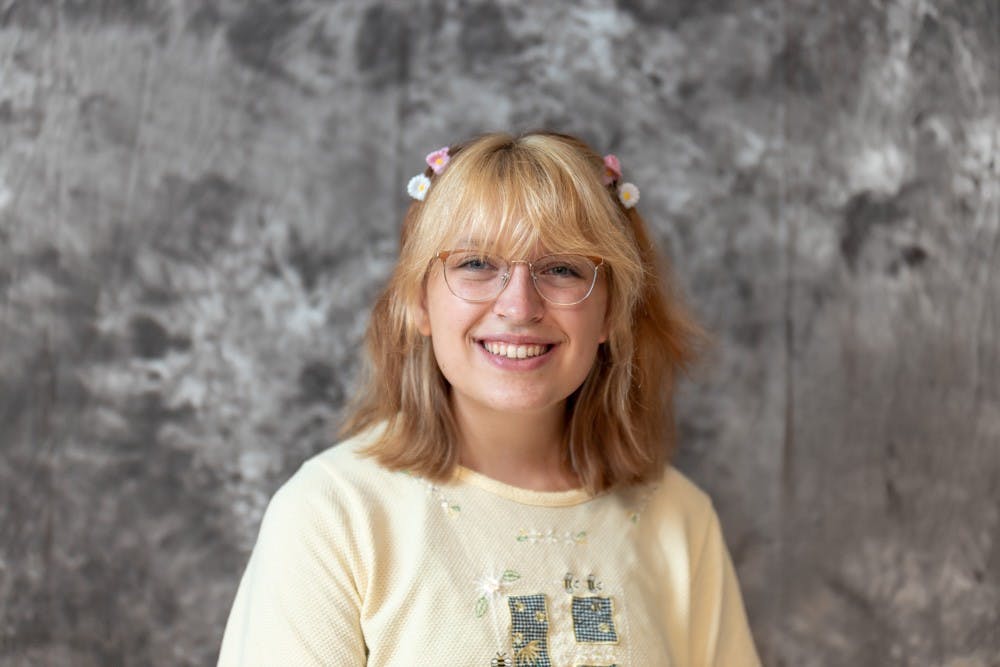I couldn’t sleep.
There was a spider in my head.
It was crawling around in my ear canal, making its way deeper and deeper into my body, impossible to get out no matter how many times I painfully jabbed at it with my pointer finger. It was taunting me, tickling the sensitive skin with its spindly, jittery legs. It was hiding just out of reach, nestled in the innermost part of my skull.
Or, at least that’s what my brain told me.
For nearly two years, I have become well acquainted with sleeptime disturbances — from hallucinations of ants crawling in my bed as I fall asleep, to insomnia that keeps me up until the sun peeks over the horizon, to nightmares that turn a healthy eight hours into an abridged three.
However, this time was different. I had grown accustomed to the hallucinations of bugs in my bed — it happens often enough that I’m fairly good at grounding myself back to reality. But the spider in my ear wasn’t a diversion from reality like those ants because, in that moment, the spider was my reality.
It wasn’t until at least an hour after I first imagined the spider, when the paranoia had fled my veins, when my body laid tense and achy and terribly tired, that I realized what had just happened — how reality had collapsed around me. And how I realized I couldn’t trust my perception of reality.
I was terrified. Completely and utterly terrified.
Mental illness isn’t something I’m unfamiliar with. I’ve dealt with bouts of anxiety and depression since I was 13. For the past year I’ve been going to therapy, hoping to get the sometimes-debilitating ailments under control, to learn to live with them (somewhat) peacefully. Nearly all of my family members are treated for anxiety or another malady. It’s a normal part of life for me.
This wasn’t.
When the immediacy of the fear began to ebb away and flow back like a receding tsunami, unaffected by the damage it had caused, a new feeling crept in.
Shame.
There was a deep sense of embarrassment — of failure, even — as I spoke with my therapist about the spider incident. As I had to parse through this horrifying experience, hearing words spill out of his mouth in the sounds of delusions, psych evaluation and eventually, more kindly, cognitive distortion, extra support.
At 20 years old I had to call my mom, who lives three hours away, to set up an action plan if — no, when — something like this happens again — to have someone anchor me back to reality, one different from the reality my brain has created. I needed her to be ready, whether at 3 a.m. or 10 p.m., to answer my calls, to tell me that I am wrong, that there is no spider. That there never was any spider.
I felt as though I had failed as an adult, to need this kind of support. I felt as if I was too old, too smart, too experienced with mental illness to need this.
Worse, I felt crazy.
There’s no good way to put it. There wasn’t as I cried on the phone to my mom, scared to the absolute core that my bearings on reality were giving way. That the truth of the world was crumbling around me, never to be remade.
I felt isolated.
I’ve always had a support system I could relate to. When I spoke to friends and family about not being able to go to the grocery store because a swell of tension would grip my heart at the thought, or, when I took 30 minute showers, just laying in the tub and not even bathing because that was more effort than my body could produce, someone could always relate.
I didn’t know anyone who could relate to this.
I didn’t know anyone who would want to talk about this.
Mental illness has always been awash in taboo, a clingy and darkening word that turns an essential health problem into a malignant and vile creature.
As a society, we’ve taken steps to destigmatize this notion. I’m grateful for this — it’s given me the ability and confidence to share my experience with anxiety and depression and learn about others’ experiences.
However, there still exists so much stigma around other kinds of mental illness (and severe mental illness) that don’t come in this nice tidy box of familiarity and popular conscience.
When you begin to experience these less “acceptable” illnesses, the psychological distress of the illness is hard enough on its own. Adding the societal notions that come with it makes it even harder to deal with.
That’s why I’m writing this column, despite the fear it drills in the marrow of my bones. I am still terrified, still rattled from this experience that happened in November. I want to cry from the fear as I type. But I’m not going to keep this experience holed up somewhere, so that it is only mine, so that no one else can relate.
I’m writing this column for any reader who has ever experienced something that shook them to the core, and because of it, felt completely alone, even if they were surrounded by love. That’s how I felt.
This is for anyone scared they’re going crazy. For anyone scared they are crazy. For anyone scared that society will find out they’re crazy.
Mental illness is scary. Petrifying, even.
But you are not alone.
You are not crazy.
Kara Anderson is a senior arts editor and can be reached at kara.anderson@ubspectrum.com

Kara Anderson is a senior arts editor at The Spectrum. She is an English and Spanish double major and is pursuing a certificate in creative writing. She enjoys baking chocolate chip cookies, procrastinating with solitaire and binging reality TV on the weekends.





